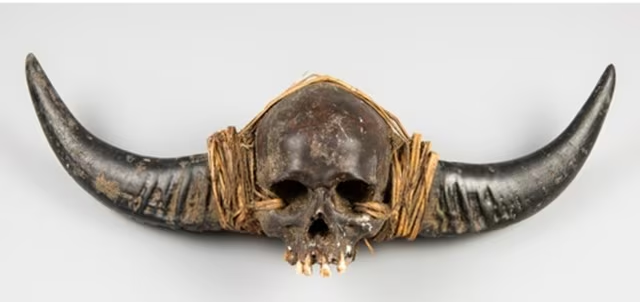Rapid Fire
UK Naga Skull Auction Controversy
- 14 Oct 2024
- 2 min read
Recently, a 19th-century "horned Naga skull" was withdrawn from an auction in the UK following significant backlash from authorities in Nagaland and India, bringing attention to the sensitive issue of Indigenous human remains and the broader debate surrounding colonial legacies.
- At the auction 19th-century Naga human skull was valued at 3,500-4,500 Pounds, alongside remains from Papua New Guinea, Borneo, Solomon Islands, and African countries like Benin, Congo, and Nigeria.
- Nagaland Chief Minister and the Civil society led the protest against the auction.
- They view it as a continuation of colonial violence and racism, perpetuating harmful stereotypes such as labelling the Naga people as "savages" and "headhunters," a characterisation rooted in British colonialism.
- The sale of Indigenous human remains, particularly those stolen during colonial rule, was strongly condemned as an ethical violation.
- The auction of human remains is said to violate Article 15 of the United Nations Declaration on the Rights of Indigenous Peoples (UNDRIP), which states: “Indigenous Peoples have a right to the dignity and diversity of their cultures, traditions, histories, and aspirations, which shall be appropriately reflected in education and public information.”
- The Naga community has been involved in efforts to repatriate ancestral remains from the Pitt Rivers Museum in Oxford, which holds around 6,500 Naga artefacts collected during the British colonial period.
Read More: NAGA Conundrum





